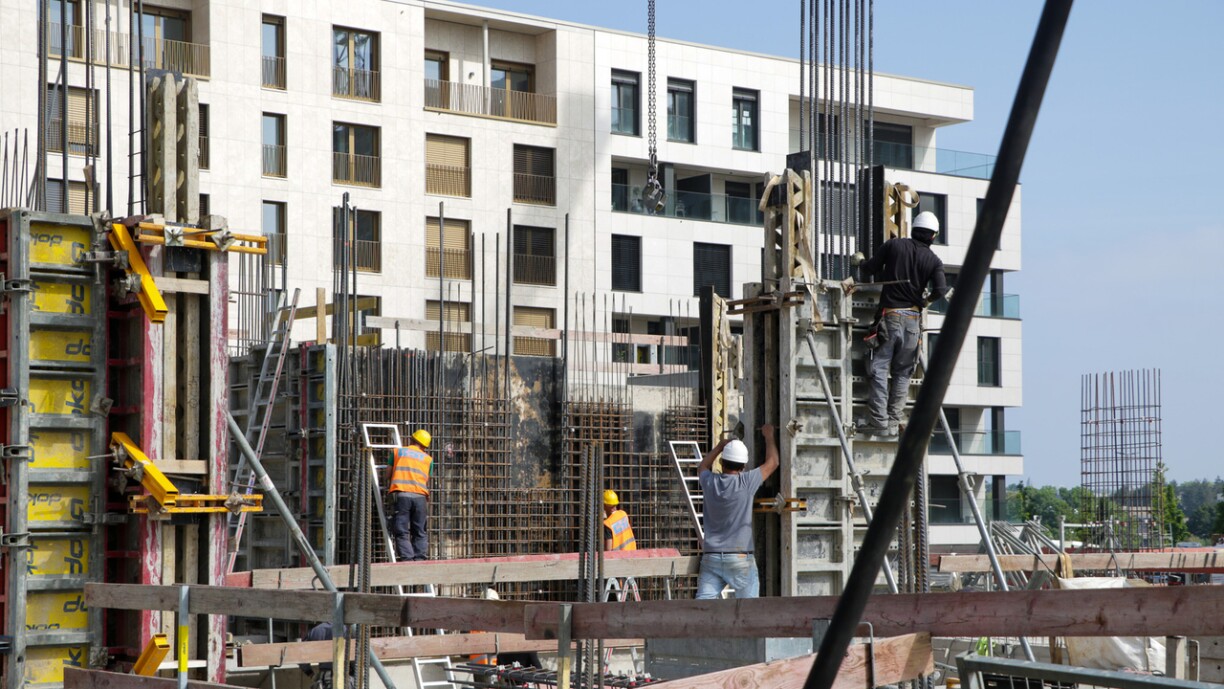
Our colleagues at RTL Infos have put together a detailed explanation behind the controversies rocking the housing sector in Luxembourg at present.
A recent report published by the Competition Authority on 19 July lit the match which sparked off the current debate, after the assessment questioned a number of factors contributing to the meteoric rise in house prices on the market.
Among the factors was the retention of land for speculative purposes, whether to anticipate administrative delays in the release of land, or simply to maximise profits. The report concluded that high prices were primarily attributed to insufficient new housing units built annually, as well as the concentrated levels of land ownership among a few.
In addition, the report questioned the actions of real estate developers in restricting the competition, as well as “land banking”, or acquiring land to limit the market share among competitors. However, these particular behaviours were not subjected to detailed analysis in the report.

But the report’s central point focused on working conditions among construction companies, suggesting the low attractiveness of jobs in the sector resulted from a “consultation among employers to keep wages low, thus making employment less attractive.” This in turn has reduced the number of completed housing projects, and raised prices due to low supply of housing units. However, for workers, Luxembourg’s sector remains more attractive than in neighbouring countries.
The Competition Authority added that estate agents were “over-represented” in Luxembourg, encouraging an auction race, as agents offer owners higher selling prices in order to obtain the contract, thus proposing prices which are “disconnected from the market”.
“Developers and estate agents have largely contributed to soaring house prices in recent years,” Minister of the Economy Franz Fayot commented in response to the Competition Authority’s report.
As the minister in charge of the Competition Authority, Fayot said he intended to inform the government council of the investigation’s results."We must do everything we can at every level to solve the housing problem in Luxembourg,” he said.

This marked the beginning of a dispute between the government on one side and companies, federations and the Chamber of Skilled Trades and Crafts on the other. The latter recently spoke out against the Competition Authority’s report, accusing it of overlooking the fundamental differences between property developers and construction companies’ business models. It added that construction companies do not enjoy the same level of profitability as property developers and cannot benefit to the same extent from rising house prices.
The surge in house prices, according to the Chamber, is primarily driven by increasing land prices, while construction costs tend to keep pace with inflation.
After years of prosperity, the slowdown of the market means construction companies are now facing an economic crisis - the most obvious example of which is the imminent bankruptcy faced by the Manuel Cardoso construction group.
The Federation of Craftspeople (Fédération des artisans), which represents the interests of 4,000 crafts businesses employing around 60,000 people in the construction sector, also commented on the report in a strongly-worded open letter published in early August.
The statement took umbrage at Fayot’s response, saying the minister’s comments blurred the line between objective statements and “baseless speculations and insinuations.” The Federation also took issue with the “conflation of property developers and construction companies,” leading to what they described as “an assault on the craft industry”, and said they were shocked by the allegation that construction companies are conspiring to keep employee wages low. The unions also judged this accusation to be “absurd”.
“It is regrettable that the Competition Authority has turned political by conflating property developers and construction companies. What is the benefit? Who does this help?”, the Federation asked.
The Federation also pointed out that “the private market produces 3,800 homes annually on the land owned, whereas the public sector produces an annual average of 300 units on similar-sized terrain.”
The Federation also denounced the administrative difficulties in putting housing on the market, as well as the lack of support for buyers and investors, accusing the government of making investment in property unattractive.
Despite the solutions proposed by the Competition Authority, such as simplifying administrative procedures for housing, combating land speculation, or regulating estate agents, the dispute continues, as the various participants seem intent on passing the buck. As long as the conflict persists, housing will remain the number one issue faced by Luxembourg residents today.